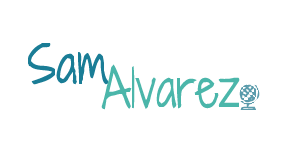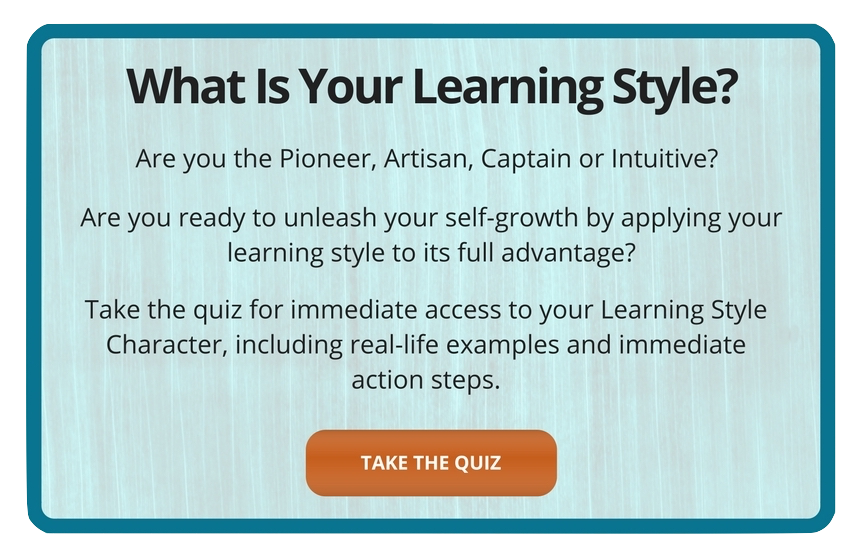The biggest roadblock in learning a new language (and how to overcome it)

It takes courage to walk up to a stranger and start a conversation. Even more so when you know the stranger doesn’t speak English.
But the whole point of learning a new language is to be able to have meaningful conversations with people from different countries and cultures. Isn’t it?
However, most of us find it hard to talk to strangers in our own town. No wonder then that we have a harder time speaking to foreigners in their language. But we so want to do it, don’t we?
If you’re just starting out learning a language, you might not feel like you know enough to start a conversation. You might be afraid that you’ll get strange looks, or worse, get laughed at. But all it takes to start a conversation is a smile and a simple “hello” or “good morning.”
The worst that could happen is that you make a mistake and use the wrong word.
Mistakes are the best language teachers
My first tryst with speaking Portuguese is embedded in my memory forever.
I was in the Azores (Portugal), living with my best friend’s family, none of whom spoke a single word of English or Spanish. And even though Portuguese is supposed to be “practically the same” as Spanish, I could hardly understand a single word my friend’s family were speaking. But that didn’t stop me from trying.
Every day, I would get up around 2 pm, as my body had not adjusted to the new time zone, walk out into the main living area and announce “Bom Dia!!!” (good morning!!) and everyone would laugh at me, and answer “Não, Boa Tarde!!” (no, good afternoon!!).
It was embarrassing the first time it happened. But later, I realized that the mistake had made the entire family engage with me, inspite of not speaking a common language. So I decided to keep making this mistake every day after that and it led to lots of laughter and meaningful interactions. Trust me; I will never forget the Portuguese for good afternoon, “Boa Tarde.”
Over the span of traveling to 26 countries and speaking to people in their native tongue, I’ve learned that people are open to having conversations if you just make the effort. Yes, you will probably make mistakes and be embarrassed. But your mistakes will always be taken with good humor and you’ll never be judged for it.
In fact, making people laugh is a good way to connect with them, which is why I kept saying “good morning” instead of “good afternoon” when I was with my friend’s family in Portugal. Making mistakes while speaking a different language always leads to laughter and is an excellent way to connect with people.
While my mistake was slightly embarrassing, James Granahan’s mistake was on a completely different level.
He was taking a walk in the park with an Argentine girl he liked. He had been learning Spanish and wanted to show off his skills. So he pointed to the lake and said, “Look, there are ducks in the lake!”
The girl burst out laughing because the Spanish word for duck is “pato”. But instead of saying “pato,” James had used a word that translated into, “Look, there are prostitutes in the lake.”
Can you imagine saying that to a girl you like?!! But it worked out in James’s favor, as he ended up dating the girl.
Mistakes might be embarrassing when other people laugh at them. But it’s just momentary discomfort.
A few days later even you will laugh at the mistakes you made, and be more fluent in the language because you made those mistakes.
How to start speaking to people in the language you’re learning
So you still find the prospect of speaking to a stranger intimidating?
No problem, speak to someone you know. A friend or a colleague or even the barista at the cafe you frequent. Explain to them that you’re learning the language and would like to practice. Trust me, they’ll be more than happy to help.

So I was at a chamber of commerce meeting in my town and someone found out that I spoke German. They immediately went and found the one German lady at the meeting, brought her over and said pointing at me (in case it wasn’t obvious), “she speaks German!” I had a lovely conversation with that lady (in my just-barely-conversational German) because she never expected to find someone who spoke German in Tucson, Arizona.
You see, even strangers are happy to speak with you if you know their language.
What’s that? You don’t know anyone who speaks the language you’re learning?
Then meet your new best friend — italki. It’s an online platform that can help you speak fluently in any language. The italki platform helps you connect with native language teachers around the world and schedule 1-on-1 lessons with them. Simply schedule a date and time that’s convenient for you and get on Skype for the live video lesson. It removes all the friction from the conversation and makes it easy to get started with speaking a new language. Check out italki today (I use it myself, and highly recommend it. iTalki even gives me a couple dollars if you sign up with my link so I can have more lessons too!)
If you still haven’t exorcised your fear of talking to other people in your chosen language, then I’ve got a silver bullet for you — start talking to yourself!
I mean, what excuse do you have for not talking to yourself? But don’t do it in front of other people. That might be weird. Or not.
Once I have learned the basic grammar and vocabulary of the language I’m learning, I open up the voice recorder app on my phone and start speaking. It’s like keeping an audio journal, where you speak about whatever is on your mind for 2-5 minutes.
It might seem weird at first, but soon you’ll get into the habit of saying words and sentences out aloud. So when the opportunity comes along to talk to another person, it won’t be the very first time you’re speaking the language. And that takes the pressure off.
What’s the best language learning approach for “you”
Maybe you shouldn’t aim to sing La Vie En Rose on the first day of learning French. (If you think you can, then go for it.)
But nor should you wait until you’ve memorized the entire French dictionary.
One of the biggest hurdles when learning a new language is practicing speaking. That is why you have to choose the language learning approach that is best for “you.”
The problem with any academic language course is that you will go through months and months of learning vocabulary and grammar. But just when you’ve just started feeling confident that you know the language and walk into your first conversation, all your confidence will melt away. You won’t be able to understand a single word because you’ve never practiced listening or speaking.
On the other hand, self-taught language learners and independent teachers will advise you to start speaking from day one. While it might work for many people, it doesn’t work well for me. I need to be more prepared than that to enjoy and find meaning in starting a conversation. If you are not intimidated by talking to a stranger in a foreign language, even when you barely know how to say “hello,” then go for it.
I like to take the middle-of-the-road approach. I learn basic vocabulary and sentence structure for 2-4 weeks along with listening to audio programs so I’m able to pick up at least a few words. Only then will I start talking to people, either through italki or Add1Challenge.
So if you’re just starting out with learning a new language, here’s what I’d do if I were you:
- Week 1: Connect with your chosen language and culture every day by watching movies, listening to music, trying new activities, and generally, getting excited about it.
- Week 2: Engage with the language every day by listening to podcasts, trying to follow subtitles in movies, memorizing lyrics to songs you like, watching learning shows on YouTube, reading bilingual books. Do things that require active attention and learning.
- Week 3: Blast off! Speak every day and make as many mistakes as possible, with as many people as possible. Set talk times up in advance using italki, talk to yourself or whoever will listen. Immerse yourself in speaking and listening to the language.
- Week 4: Plan for the plateau. Before you start feeling overwhelmed and demotivated (which WILL happen at some point), you need to plan how you will get out of the funk. Create your contingency plan.
The key to learning a new language is speaking it. Without speaking, you’re missing out on enriching your life by having meaningful conversations with people from other countries and cultures. So start speaking as soon as possible in your language learning journey.
If you’re daring enough, you can start speaking from day one, but don’t ever wait until you’re ready (which never happens). That’s why I find it much more comfortable to set a timeline for myself. It helps you prepare for the conversations and makes you more confident when speaking.
Remember, learning a new language is supposed to be fun. If you’re not enjoying it, you’ll lose motivation down the line. Stay in that yellow zone, where you’re feeling comfortable enough to expand the horizons of your language. Soon, you’ll be having conversations without even realizing it.
And to help you get started, I’m going to set you a simple task. Use Google Translate and paste the following sentence, “Hi, I want to learn [insert the language you want to learn]” and translate it into the language you want to learn. Then copy the translation in the comment below and let’s get the conversation started.
If you’re still unsure why you’re finding it hard to learn the language of your choice, it might be because your personal learning style is not matching up to the methods you’re using. Check out my “language learning style character” quiz to find out what learning methods will suit you best.

